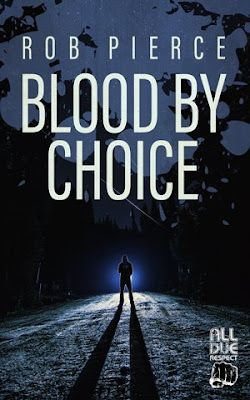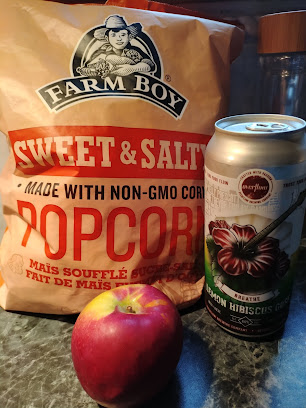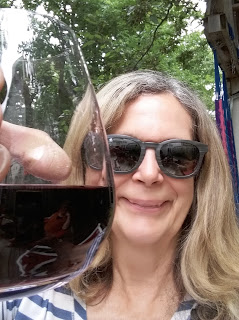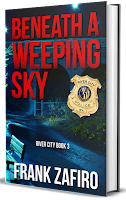Have you ever tossed out 20,000 words from a work in progress? Why, and was it, in hindsight, the right move?
From Frank
Yes. Well, over 17K, anyway.
(Some minor spoilers here for River City #3, Beneath a Weeping Sky, by the way).The first two River City novels ran 66,000 and 68,000 words, respectively. The first "final" draft (ready for beta readers) of Beneath a Weeping Sky (BaWS) ran a whopping 150,000 words.
Yes, 150K. A little over, actually.
To be fair, the story was more complex. The character arcs were deeper. More characters got one of those aforementioned deep arcs. BaWS is an ambitious book, and it is an epic story, so it should run an epic length, right?
Uhhhh.... well, 2008 Frank certainly thought so. Thankfully, I had editors and beta readers and writer friends who convinced me otherwise.
In BaWS, a serial rapist is at work in River City. The cops are obviously trying to stop him, especially since he is growing more violent with each assault. The main characters are a detective and two patrol officers. We also spend a fair amount of time with the bad guy. The patrol officers, Katie MacLeod and Thomas Chisolm, have some demons in their past where this kind of crime is concerned.
The book is divided into ten parts. Here's how the first draft shook out:
Part I: Bad Guy commits an assault (1400 words). This is more of a prologue, really.
Part II: Main Storyline (34,000 words). The cops learn of the assault and early stages of the investigation.
Part III: Katie MacLeod flashback (2400 words). MacLeod was a victim of date rape while in college. This case, including eventually serving as a decoy, brings those buried memories to the forefront.
Part IV: Main Storyline (8000 words). Continued investigation.
Part V: Thomas Chisolm flashback (7500 words). Chisolm was a soldier in Vietnam, and interrupts two separate rape attempts.
Part VI: Main Storyline (53,000 words). The investigation heats up considerably. The Bad Guy learns of MacLeod during their efforts to draw him out. Begins to target her.
Part VII: Bad Guy flashback (19,500 words). We get the origin story of what made this person who he is.
Part VIII: Chisolm flashback (2900 words). We get the resolution of what happened from his earlier flashback.
Part IX: Main storyline. The climax of the story. Bad Guy tries to assault MacLeod but she bests him.
Part X: Aftermath (6300). Essentially an extended epilogue that wraps up all the loose ends.
Whew. That's a lot.
So, the first round of edits included your standard cuts -- tightening, etc. But when I sent it to my trusted readers, I got a big heads up. Instead of heightening the tension, the flashbacks were killing it, as well as the momentum. Just as the main story got rolling (or was steaming along), a flashback came along and threw up a road block.
I resisted the advice at first. I thought how the current events affected these characters because of their past experiences was important. Especially for Katie, who, although her flashback was the shortest, was arguably the central character of the book, and was constantly dealing with the pressure of the here and now right along with the past.
But my friends and readers were right. So here's what I did. I cut out Katie's flashback, and both of Chisolm's. There's 13,000 words. I added back in a thousand words or so in the main storyline to strongly allude to what these characters went through in the past but the reader doesn't get the line by line details, just the gist.
I couldn't bring myself to ditch one flashback, though. The bad guy was too fascinating, and exploring his back story too tempting. I justified it at the time (and still do) by pointing to the masterful way Thomas Harris accomplished this with Francis Dolarhyde in Red Dragon. Three quarters of the way through the book, we get an extended flashback detailing his childhood. The result is that the reader is forced to look at a character who you doubtlessly despised and see something more nuanced. Not something that forgives anything that he is doing now but it does muddy the emotional waters. To paraphrase the lead character in Michael Mann's wonderful adaptation of the Harris novel (Manhunter, 1986), he's irredeemable as an adult but your heart bleeds for him as a child.
I wanted that complexity in this book. So I kept the concept of a Bad Guy Flashback, though I trimmed it by about two thousand words.
The new lineup was only five parts - a prologue, main story, bad guy flashback, main story, and epilogue. The second draft ran 136,000 words. Further trims and tightening brought the count down to 133,000 words.
Still huge. If I was editing it today, I'd find a way to tighten it further. But while it is admittedly a big book, it doesn't drag. Getting rid of the flashbacks keeps the story rolling. And it is tense -- there is a lot of conflict, and tension both internally and externally.
The remaining flashback is controversial. Readers are polarized about it. Some couldn't care any less about the bad guy and hate the flashback. Others find it absolutely essential to the story.
Obviously, I fall into the second camp. But if people hate the flashback and just skip it, I can live with that.
(Note: It was only after finishing this post that I realized I should have talked instead about how Colin Conway and I took Some Degree of Murder from 111,000 words down to under 74,000... oh, well. Here's the short version: brutal, merciless cuts. And the book is much better for it.)
****************
Speaking of River City, my newest entry in the series (#7) is
Dirty Little Town. It will be out on November 18! You can
pre-order now on Amazon or
other platforms.
Full disclosure - this one runs about 100K, which as been the norm for the last few installments. This is going to change with #8, as I'm going to shoot for a 70K range from here on out.
Times are tough for the River City Police Department. The city budget is collapsing, forcing an already understaffed department to contemplate laying off cops. The community is upset over the handling of recent events, and their anger is impacting the agency from the ground up. Negotiations with the police union are somehow both heated and stagnant at the same time. To "fix" the problem, the mayor appoints a new chief, but the cure may be worse than the disease.
Worse yet, a killer is stalking the streets of River City, targeting vulnerable women. Rookie detective Katie MacLeod is assigned to assist in the effort to stop him but the case is stymied.
Somehow, the men and women of RCPD have to put aside all of the distractions and focus on their jobs – to serve and to protect.
Takes place in 2003.
Not only does River City get a new release but ALL my River City-related titles will be on sale (or free) from November 18-22, 2021! This includes the book discussed in this article -- yes, BaWS will be free. So, pick it up and decide what you think of my decision to leave in the villain flashback.

































